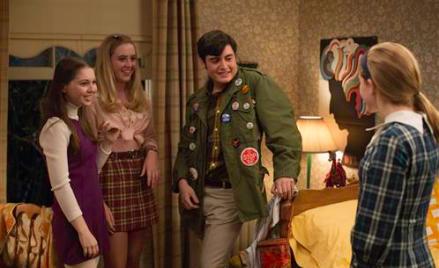Seth, Paul,
Paul, I do have thoughts about the episode’s title, “The Quality of Mercy”! It comes of course from Portia’s speech in Merchant of Venice in which she tries to convince Shylock that he should not in fact extract his due pound of flesh from her friend Antonio, that the more noble, and, in fact, the more powerful thing to do would be to have mercy. It is a beautiful compassionate Christian speech that can move you in the moment—but it’s also utterly cynical. Portia is playing Shylock for a fool; she and the whole wealthy, spoiled Venetian society that is the 16th-century version of Madison Avenue has treated Shylock with nothing but contempt and made it clear that he is beneath their Christian values. Plus Portia is about to use some clever legal maneuvering to cheat Shylock out of his rightful pound of flesh anyway. Mercy in this case is a power play; it is entirely situational and does not arise naturally from a pure heart.
One thing Mad Men gives us very little of is a pure heart. Megan is as close as it gets this season, but in general, the show’s philosophy seems to be that people who do the right thing do it despite themselves. An act of mercy arises accidentally from the muck of human existence, like a baby aspirin that appears in a room full of monsters. Did Don do the right thing in that meeting with the St. Joseph’s executives? Did he rescue the whole ad campaign by coming up with that bogus heartrending story about how this was Frank Gleason’s last idea? Did he save Ted and Peggy from themselves by making them acknowledge the fact that their mutual mooning is getting in the way of their work? (And do it in a way they will never, ever forget?) Yes, yes, and yes (and yes).
But still, Peggy’s not wrong when she yells at Don that he’s a monster. Don did not need to shame Peggy and Ted like that. It was in fact part of a power play for him, a corollary to getting Sunkist back and once again vanquishing Ted. It was the right thing to do—Peggy and Ted were poisoning the office atmosphere and they seemed totally unaware of it—but it was also totally cynical and cruel. After betraying his old friend Peggy, Don collapses into a fetal position—this time not in an imaginary crib screaming “Wah wah” but on his own couch.
Paul, you ask if Pete is Shylock. I think that’s reversed—in that case it’s Pete who is playing the role of Portia (who in the play gives her speech disguised as a man) and Bob who is Shylock. Shylock is the outsider, the one trying to absorb the values of the ruling class he lives in but who is always in danger of getting smoked out. (The Jews and the gays, together again.) Pete already had one fake magnanimous act earlier in the episode, when he “graciously” agreed to take Kenny Cosgrove’s role on the Chevy account, which he’s been angling for all along. And now with Benson he was again trying to be magnanimous. I have to admit, I could not follow all of Pete’s maneuvers in his speech to Bob Benson. What exactly was he apologizing for? And he’s off limits for … sex? But in the end he wound up doing just what Portia does—neutralizing an enemy and putting him back in his place.
A subtheme in Merchant of Venice is the spoiled rich kids who come out of this culture of greed. In this episode we get or own version of the tainted next generation. Paul, I deeply appreciated your analysis of boarding school mores. I think you’re right, that boarding school provides Sally with a ruling system she can figure out how to navigate. But I take slight issue with your characterization of how she behaved. Did she really call Rollo out on his behavior and call Glen to the rescue? Rollo was a jerk to call her “frigid” but is that the same as trying to “force” her, as she accused him of doing? Or did Sally just knock on Glen’s door because she didn’t want Millicent to win that one, just like her father doesn’t want Ted to win? I tend to side with what Millicent the mean girl told Sally: “You like trouble, don’t you?”
Call your mother and tell her you’re useless,
Hanna
